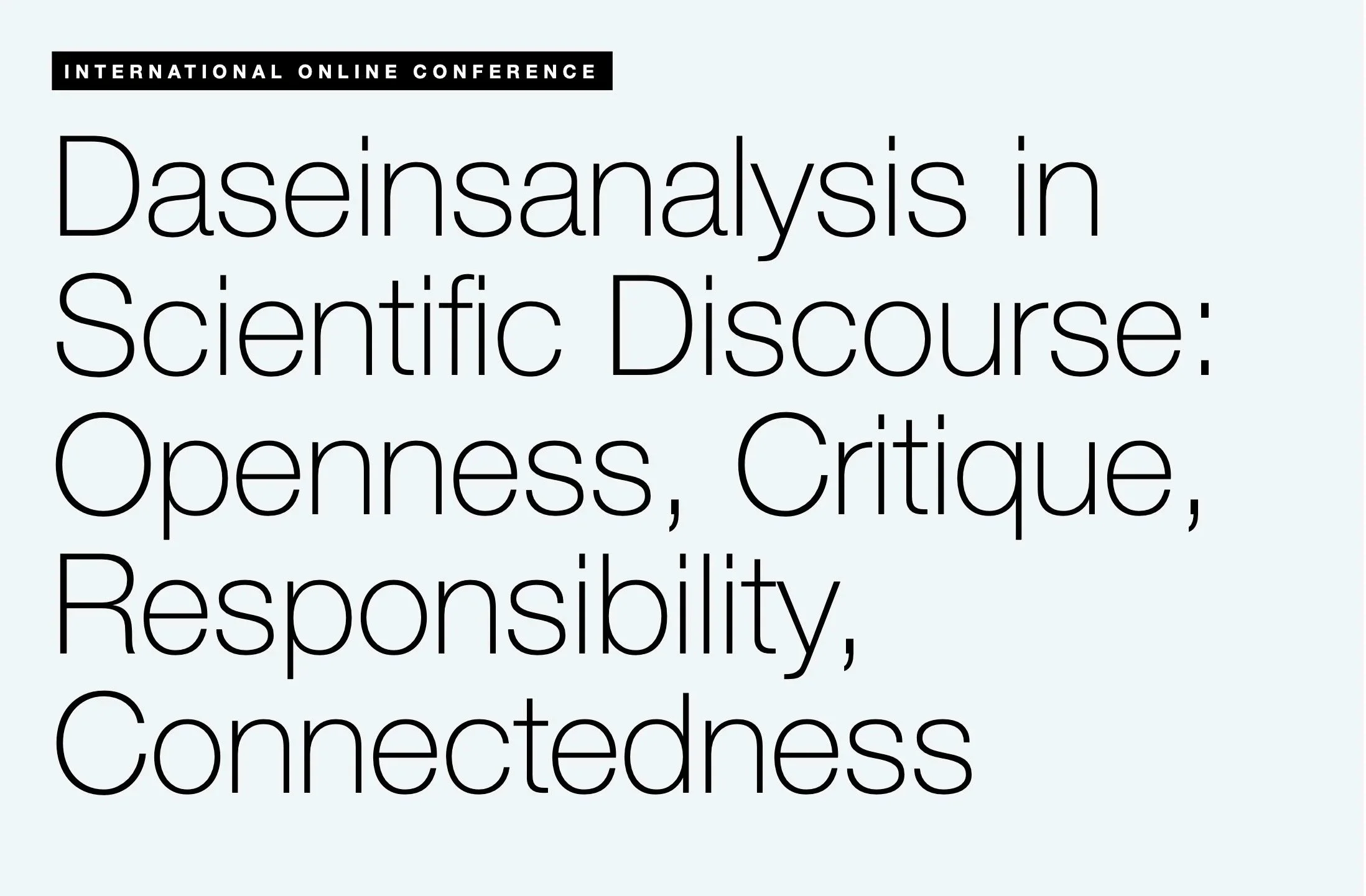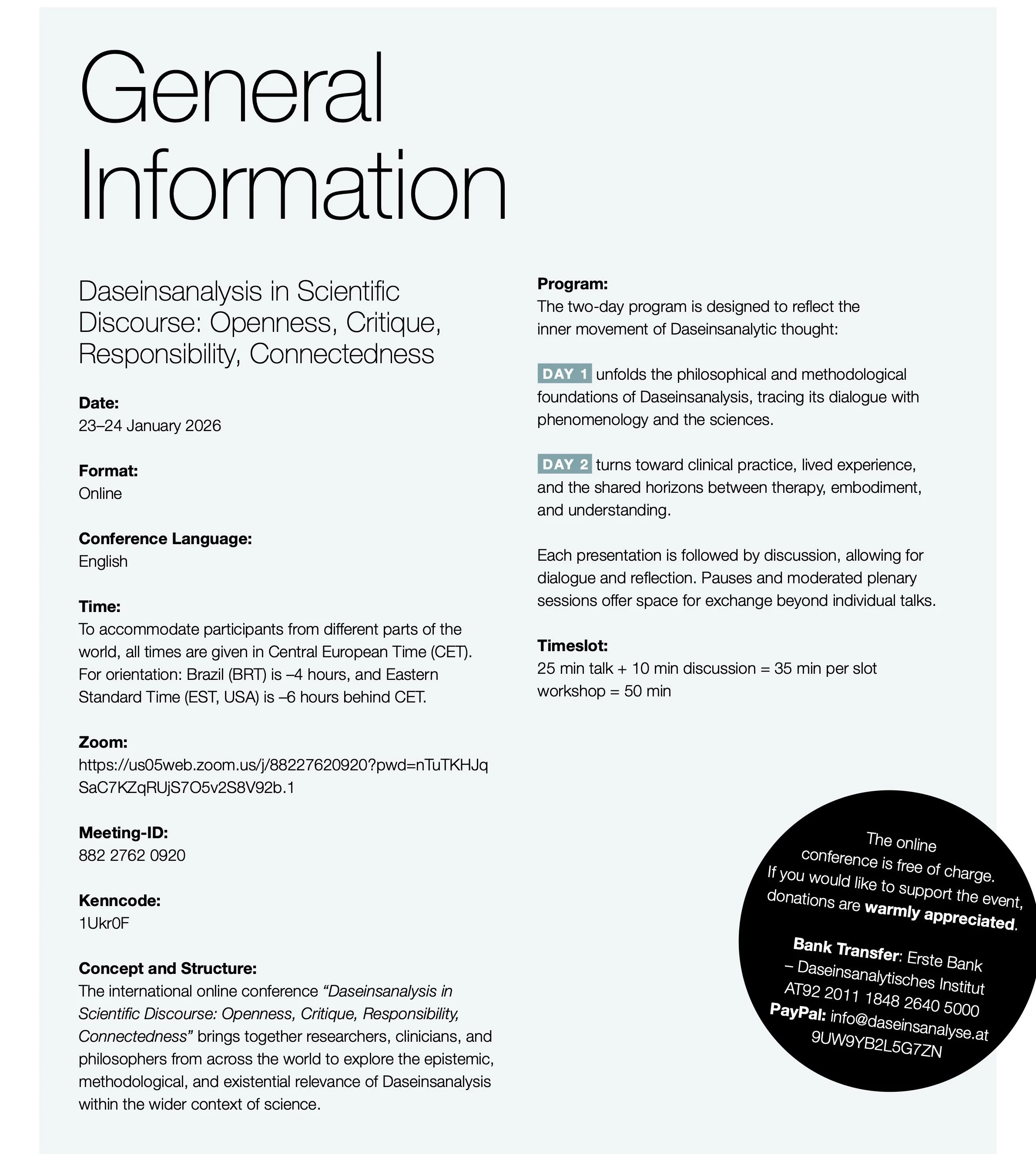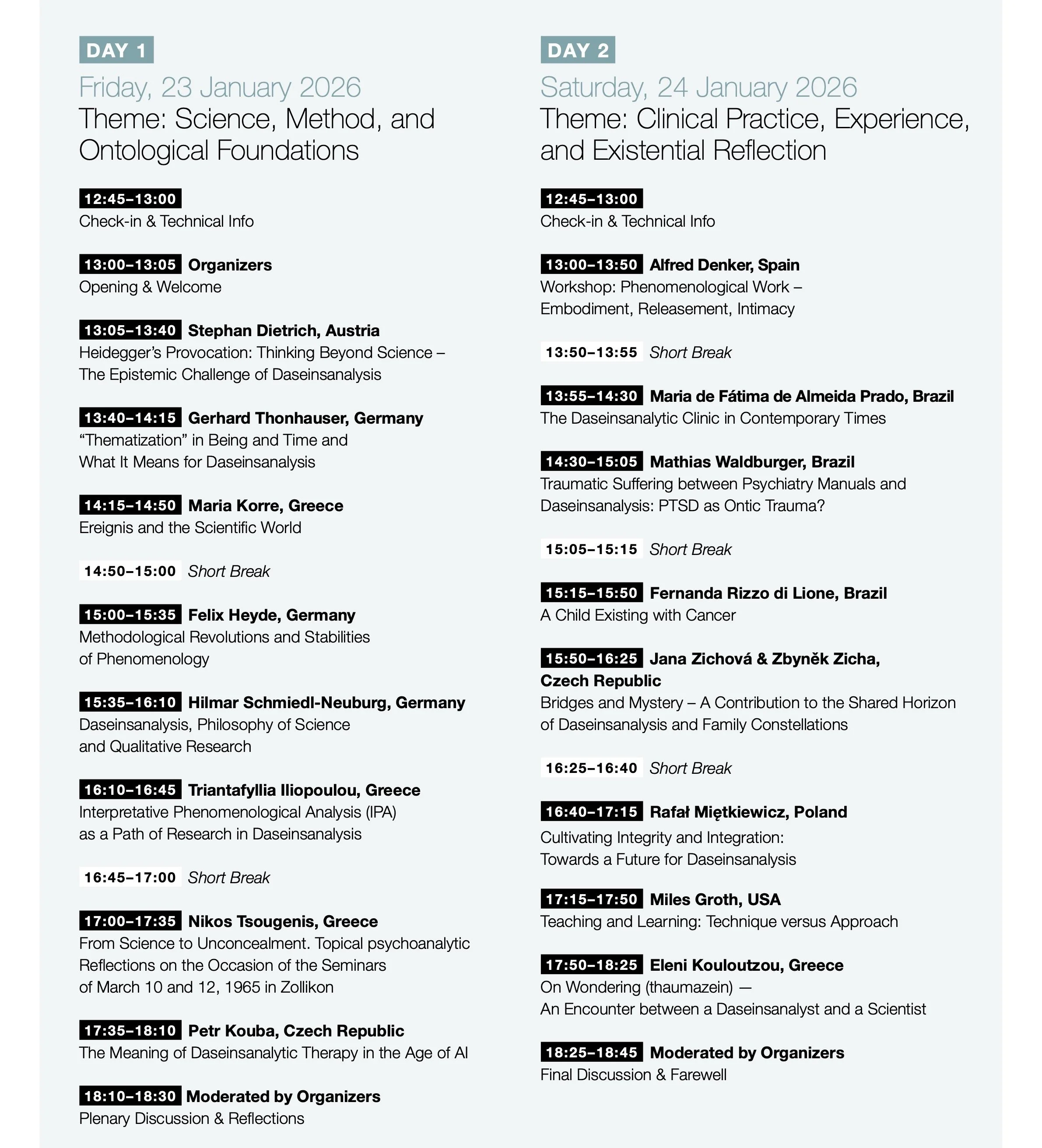Zoomlink für die gesamte Veranstaltung: https://us05web.zoom.us/j/88227620920?pwd=nTuTKHJqSaC7KZqRUjS7O5v2S8V92b.1
Meeting-ID: 882 2762 0920
Kenncode: 1Ukr0F
Daseinsanalysis
in Scientific Discourse
This conference brings together scholars and practitioners from various traditions who share an interest in the dialogue between Daseinsanalysis and the sciences. We are grateful for your participation and for the willingness to contribute to this ongoing conversation.
Daseinsanalysis stands at a point where renewal and reflection meet. Emerging from phenomenology and existential philosophy, it has preserved a unique atten- tiveness to human existence in its openness, vulnerability, and freedom. Yet today, its relation to science calls for renewed clarification: What does it mean for Daseinsanalysis to be “scientific”? Can an approach that begins with the question of Being participate in empirical and methodological discourses without losing its foundations?
We are convinced that this question should be addressed not through opposition, but through dialogue. Science
is not a single enterprise; it comprises diverse ways of inquiry, each with its own understanding of rigor and truth. If Daseinsanalysis wishes to contribute to this plurality, it must learn to communicate its insights beyond its own circles— through conceptual clarity, interdisciplinary openness, and the courage to engage. The task is not to adapt to existing paradigms, but to show that the question of Being belongs to the very ground of all knowledge.
The founders of Daseinsanalysis did not entirely dismiss modern science; rather, they maintained a critical and sometimes ambivalent stance toward it. Their aim was to remind science of what it easily forgets: that every form of knowing arises from an open relation to existence. To take this seriously today means to think across boundaries— between therapy and philosophy, research and practice, ontology and methodology. Such thinking requires both precision and humility; it invites critique while cultivating connection.
The perspectives represented at this conference are manifold. Some may emphasize cooperation with contem- porary science; others may argue for greater distance and differentiation. We hope that this diversity of voices fosters a genuine exchange—one that deepens understanding and allows new beginnings to emerge.
Karl Baier & Stephan Dietrich
Austrian Daseinsanalytic Institute



